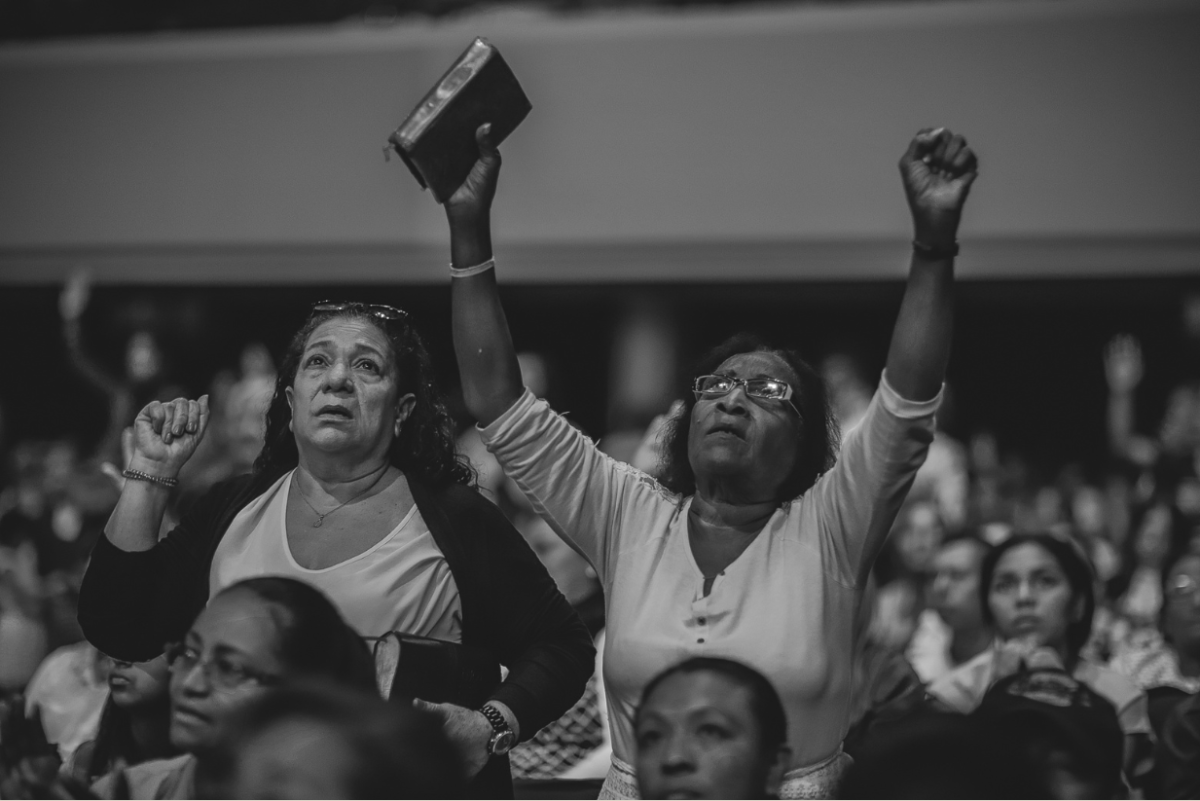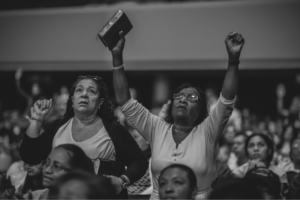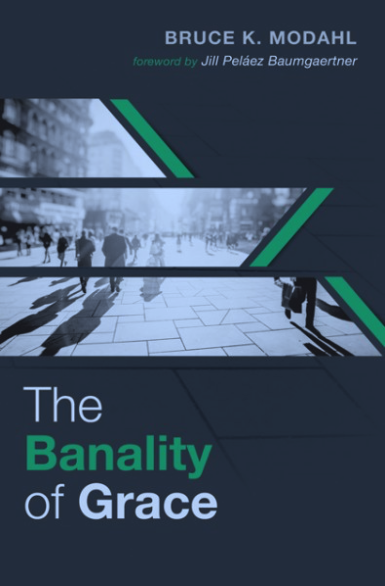Co-Missioners,
This week we send you another offering from our mission essayist, the Rev. Richard Gahl. Dick spent much of his career as executive director of the Lutheran Church—Missouri Synod’s Ohio District. For readers with exclusive ties to the Evangelical Lutheran Church in America, an LCMS district equates with an ELCA synod. The closest one might get to Dick’s role in ELCA parlance is “bishop’s assistant on steroids,” or something like that. We mention this because you’ll find Dick drawing on his long experience and hard-won expertise to underscore a point that all U.S. Lutherans need help with these days. So do other Christians of other labels.
Something else we all need help with is our comprehension of God’s grace. To that end, be sure to catch the note we got today from the publisher of Bruce Modahl’s new book. It’s appended to Dick’s essay. Bruce is the editor of our quarterly newsletter. Our congratulations to him—and to God, our thanks.
Peace and Joy,
The Crossing Community
To Give the Laity their Priestly Due: An Ongoing Lutheran Challenge
By Richard Gahl
“Equipping the baptized for their indispensable role as agents of and witnesses to the Gospel”
The November 29, 2018 reboot of Thursday Theology introduced readers to the new elevator speech summarizing the purpose of Crossings. Our editor then noted the switch from addressing readers as “colleagues” to “co-missioners.” Appearing on the home page of the recently revamped Crossings website is the tag line: Where the Gospel Meets Our Daily Lives. “Equipping” is the word in Ephesians 4 sometimes translated “building up.” “Baptized” is another word for Ephesians’ “saints.” “Agents” takes us to the role of “being sent,” even apostolic or commissioned. “Witnesses” certainly is a connection with daily life. It’s the “indispensable” in the elevator speech that should grab our attention for major reflection.
The last submission for this mission thread in Thursday Theology reviewed the recent “Royal Priesthood” document from the Lutheran Church—Missouri Synod’s Commission on Theology and Church Relations. Foundational biblical texts from Exodus, 1 Peter and Revelation were referenced. The question remains: Why have so many dispensed with what is deemed to be indispensable? It’s time to make even a feeble attempt at diagnosis.
There is no question that our 21st century culture is consumer oriented. “What’s in it for me?” is the mantra. A result is that we expect the church to do things for us. We pay pastors to do the church’s work. In practicality this means members get all the benefits with little consideration of on-going responsibilities.
When we take a careful look at congregational life the royal priesthood runs into a culture that places a strong emphasis on the person of the pastor. For example, the Missouri Synod’s first annual statistical yearbook identified church locations by the name of the pastor and the city/state, not by the name of the congregation. While that practice did change eventually, it was common in my experience to hear congregations identified by the name of the pastor—even suggesting it was the pastor’s (possessive) parish.
Within the LCMS, a significant factor in congregational conflict could often be traced to a conflict between the pastor and principal of the congregation’s school. There was a superior/inferior ingredient to many of those conflicted relationships. There are also examples where the pastor chaired meetings of the church council and voters. Dare we describe the governance model as the German Herr Pastor? (Editor’s note: in the old Lutheran Church in America, a predecessor to today’s ELCA, this merging of pastoral and presidential roles was constitutionally required.)
Of special concern in the LCMS were situations where a seminary graduate had been removed from the roster of clergy “for cause,” or had resigned from the roster of clergy before he could be removed. Seminary graduation and ordination provided an aura that was only slightly dimmed when no longer serving in pastoral roles. This sometimes led congregations to invite a person so removed to serve as their pastor nonetheless. The consequences were often unhappy. It can also be noted that a retired pastor continuing on as a member of the congregation has been troublesome at times, especially when the one retired has difficulty letting go.
Off the point, yet to the point: Have you ever taken measure of a congregation without a pastor? The typical nomenclature is to term it “vacant.” And should the congregation not have the financial means for a full-time salary and benefits, an outsider raising the possibility of sharing staff with another congregation is met with resistance. Having a full-time pastor was almost an entitled status whatever the size of the worshipping assembly.
What’s going on? So we need to dig a little deeper.
 A June 2019 article by James Carroll in The Atlantic, “Abolish the Priesthood,” may be a clue. His topic is about clericalism.
A June 2019 article by James Carroll in The Atlantic, “Abolish the Priesthood,” may be a clue. His topic is about clericalism.
“The conceptual underpinnings…can be laid out simply: Women were subservient to men. Laypeople were subservient to priests, who were defined as having been made “ontologically” superior by the sacrament of holy orders…. Clericalism is self-fulfilling and self-sustaining. It thrives on secrecy, and it looks after itself.”
Carroll describes how in his ordination the ceremony called for him to place his hands inside those of the ordaining bishop: “I gave my loyalty to the bishop ordaining me, not to a set of principles or ideals, or even to the church.” Five years later he left that role to write for a major newspaper.
Clericalism, though not by that name, of course, was one of the significant issues of the Reformation. By Luther’s time it was common for priests to think of themselves as the First Estate. For the record, at the time the Second Estate was the nobility with the Third Estate as the peasantry. The Fourth Estate, the press, was identified in England in the late 18th century. The medieval structure of the social classes meant that those on the bottom supported those above them. Of course, those on the top desired to maintain their status at all costs.
Luther’s response was simple and profound: There is only one estate, the baptized. The German term was “Stand” a word that carries over in our own Anglo-American culture bearing legal implications (i.e. does an individual have “standing” before the court for a specific case). But Luther was almost egalitarian in his argument for the royal priesthood. At times he referred to the head of the house as bishop and his spouse with a feminine form of bishop. There was to be only one estate or standing among the people of God.
However, the medieval concept of the clergy being of a higher estate than the rest of the baptized continues to permeate even Lutheran culture today. Once a pastor always a pastor is a common understanding. The implication is that ordination makes an indelible or inerasable impact on the individual. The aberrations of the adaptation to consumer culture and medieval clericalism illustrate further work to be done. Yes, ordination and call are important; but that is the subject for another time.
The point being made here is
“Equipping the baptized for their indispensable role as agents of and witnesses to the Gospel”
is the indispensable work of the church. The teaching and proclaiming of the promise of God requires it. Equipping the baptized to bring Gospel to daily life is a continuing and critical activity in the royal priesthood, the community of the faithful.
From Michael Monk, Marketing Dept., Wipf and Stock Publishers—
Cascade Books, an imprint of Wipf and Stock Publishers, has recently released a book by Bruce K. Modahl we thought may be of interest to you: The Banality of Grace.
You can read the book description as well as purchase the book at a 20% discount via our website by clicking the following link: LINK
If you are in the UK, Europe, or Canada please contact Customer Service at orders@wipfandstock.com for better shipping options than those that are available through our website check out.
Book Details:
The Banality of Grace
Cascade Books
ISBN 13: 978-1-5326-6037-5
Softcover $15
Pub. Date: 6/26/2019
Thursday Theology: that the benefits of Christ be put to use
A publication of the Crossings Community






You must be logged in to post a comment.